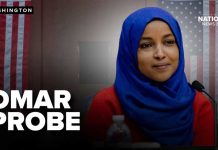
President Donald Trump intensifies his grip on independent federal agencies through a sweeping executive order that many see as reshaping the U.S. executive branch.
Key Takeaways
- Trump’s executive order expands the oversight capabilities of the Office of Management and Budget (OMB) over independent federal agencies.
- Independent agencies must now submit draft regulations to the White House and align with administration priorities.
- The executive order aims to restore constitutional governance and ensure accountability to the electoral system.
- Critics argue the move protects major corporations from scrutiny by independent agencies.
- The order excludes the Federal Reserve’s monetary policy functions, maintaining its independence in this area.
Executive Order Details
President Trump signed an Executive Order to ensure federal agencies adhere to oversight that aligns with the U.S. Constitution’s vision. The order broadens the role of the Office of Management and Budget, expanding its powers to include independent federal agencies that have operated without presidential supervision in the past. This move aims to introduce accountability so that agencies like the FTC, FCC, and SEC prioritize national interests over autonomous decisions.
The Order instructs all agencies to submit their draft regulations for review by the White House. Russell Vought, the OMB director, emphasized the need to seize pockets of independence that circumvent presidential authority. The goal is to prevent these agencies from implementing unanalyzed regulations that lack proper oversight and accountability.
Constitutional Accountability and Governance
The order is a part of Trump’s larger initiative to bolster presidential authority, underscoring Article II, which vests executive power in the President. It demands consultation between agencies and the White House regarding strategic plans and performance standards, thus reinforcing the principle that the government should be accountable to the people.
With the OMB adjusting agencies’ apportionments, there’s a significant push toward utilizing tax dollars more efficiently. While supporters of the move applaud the increased accountability, some have argued it goes against typical interpretations of the Constitution. Meanwhile, Robert Weissman, co-president of the consumer advocacy group Public Citizen, has argued the order protects corporations from independent agencies.
Read the full article here: https://t.co/Ksejc0cpuJ
— The Epoch Times (@EpochTimes) February 19, 2025
Implications for Independent Agencies
The administration’s pursuit of greater control over independent agencies forms part of efforts to realign federal governance. Agencies like the SEC and FTC, now compelled to submit policy priorities for approval, experience reduced autonomy. Notably, the Federal Reserve remains exempt from this requirement concerning its monetary policy functions.
As the administration pushes forward with these changes, the courts, rather than Congress, have emerged as the primary challengers to this reconfiguration of authority. Critics contend the executive order disproportionately shifts the balance of power within the federal landscape.
Sources
- Trump signs order to expand White House control of independent agencies
- Fact Sheet: President Donald J. Trump Reins in Independent Agencies to Restore a Government that Answers to the American People
- Trump signs order making independent regulators answerable to White House
- Trump Signs Executive Order to Enable OMB Oversight of Independent Agencies













